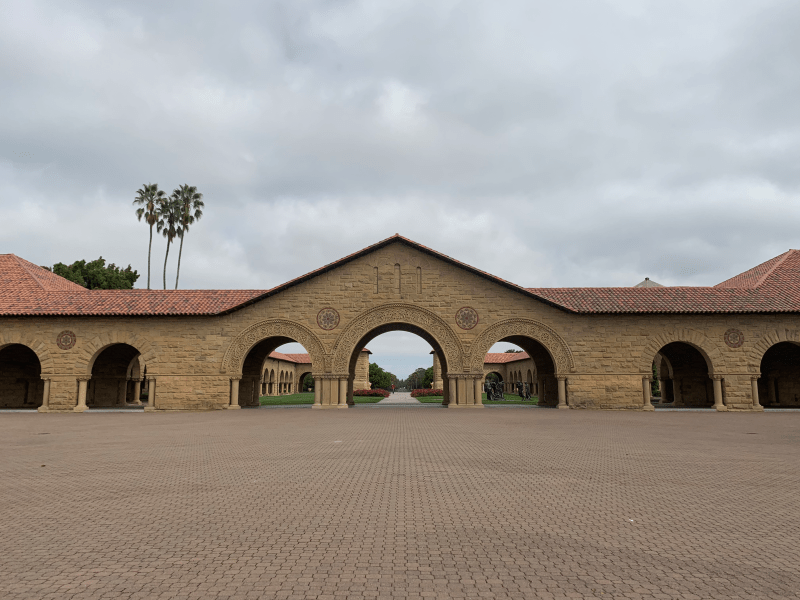Undergraduate students planning to live on campus during fall quarter have been asked to sign Stanford’s new “Campus Compact.” They had until Sept. 14 to agree to the compact in order to enroll in their fall courses. Much of the compact is simply common sense, containing rules of the benign and welcome variety we’ve come to expect from workplaces and schools. In its zeal for public health, however, it can be both coercive and infantilizing.
Under the Compact, students must live in monastic isolation. Unless they have a roommate, spouse or child, undergraduates are to keep six feet distance from all people, at all times. If students step off campus, they remain subject to Stanford’s rules, both indoors and outdoors. They are forbidden to invite anyone into their private rooms, nor allow any “non-Stanford individual” to step foot on campus. These rules include friends, lovers and parents. The compact only exempts “Essential Visitors” providing “essential services,” (defined by the Santa Clara County website), kindly granting students access to packages and emergency health care.
These austere conditions will be imposed on students for months at a time, and enforced by reluctant peers, obligated, by the same compact, to report the smallest infraction, real or imagined, to the newly formed “Compact Review Panel.” At any moment students may be summoned to this tribunal and be informed of their crimes against the public health, and their punishment.
In its original form, the panel gave no chance for defense or appeal, and an “appeals process” was only recently announced after significant student protest. The nature of this process, like that of the panel itself, remains vague. Students can only wait for the next announcement to know whether it will include due process.
The panel “may impose a range of consequences” including “possible disciplinary action pursuant to the Student Judicial Charter of 1977.” The most concrete of its consequences is a student may be “removed from campus.” Despite soothing assurances that their work or education will continue online, for most students, leaving campus will indeed be a punishment.
Many students wish to return to campus, if only for the chance to sit in a classroom with their peers and teachers. They are happy with a fraction of a real in-person education, for which, incidentally, they are paying the same price. Come winter and spring, they might decide it’s not worth the trouble.
Consider, however, those students who need rather than want to live on campus. More than 1,000 students applied for housing due to “Special Circumstances,” and the majority returned to Stanford in the past weeks. Some have already signed the Compact, simply because the alternative is far worse. These are students for whom losing housing means losing a visa or undertaking a complicated and precarious journey back home. They may not have a home worth returning to. These students have no choice but to accept the rules.
To invoke local laws and guidelines as justification for the Compact is specious as well as misleading. Students aren’t being asked to obey the laws like any other adult. Rather, students are being asked to obey Stanford in their stead. About this, the Compact is clear: “I understand that Stanford may also enact policies more restrictive than public health guidance.”
No laws of public health presume to control your room, or threaten you with eviction. Would anyone suffer such rules from a teacher, boss or landlord? Why is the University, which acts as all three, any different?
This is only the latest episode in history of the University’s acting in loco parentis (in the place of parents). Its zealous policing of students is all too familiar. Undergraduates know well that before COVID-19, students could not speak, drink or sleep together without the University watching their mouths, counting the bottles under their beds and peeking under the covers to check if they behaved.
In this case they are not trusted to play with the other children at all. It is as if students are considered oblivious to the mortal peril facing others, or to any motivations of personal or civic responsibility.
It is not enough to point to the carelessness of youth. Not all undergraduates are teenagers going off to sleep-away camp. Nor are the old, as creatures of habit, any less likely to bridle against these new rules. If there are to be rules, they should be applied equally.
Of course, our schools are not all to blame. In exchange for their money, parents do entrust their kids to the care of the University. They expect their children to be housed, fed and entertained, as well as educated. These expectations, or demands, of the market come with liabilities. It is only natural that along with the burdens, the University assumes the rights of parents. Now they are in a singular and unenviable situation.
The best kind of care is the kind that treats students as adults, and as citizens responsible for themselves and others. The same could be said for a college education.
Contact Antonio Puglisi at apuglisi ‘at’ stanford.edu.
